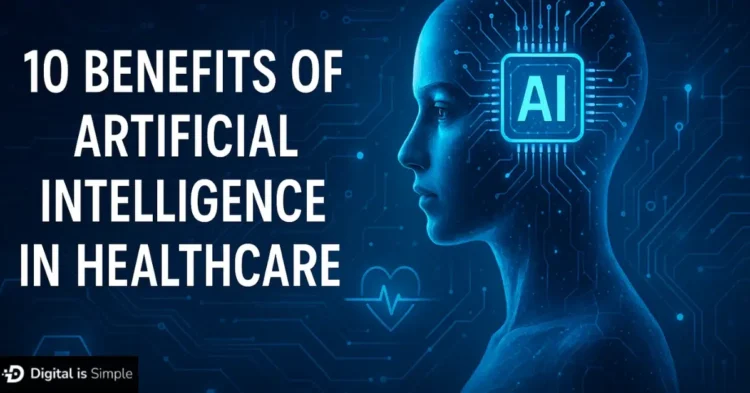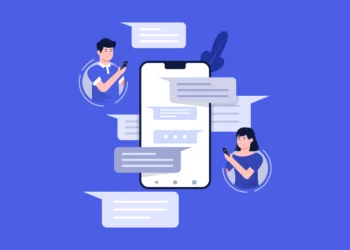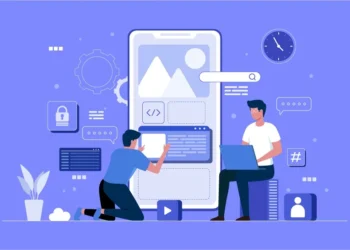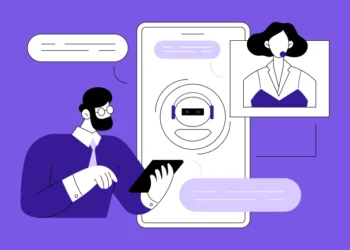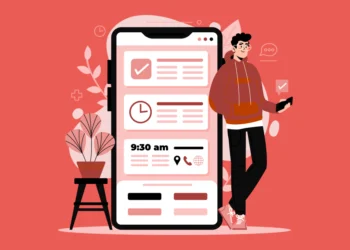Here’s the thing most people miss: AI isn’t some futuristic sci-fi magic – it’s fixing healthcare’s biggest headaches today. No more drowning in chaotic hospital workflows or one-size-fits-all treatments. AI simply handles the automated administrative overload.
The same way AI in finance makes banking smarter and safer, Artificial Intelligence in healthcare acts as a silent powerhouse—operating quietly in the background to make medicine smarter, faster, and way more personalized without the flashy spotlight, just real results happening right now.
In this blog, I’ll walk you through:
- 10 practical, user-focused benefits of Artificial Intelligence in healthcare
- 5 universal positives of AI every industry can relate to
Let’s dive into the future—because it’s already here.
What Are the 10 Notable Benefits of AI in Healthcare?
But the real leap happens when healthcare teams team up with an AI development company because that’s where innovation meets execution.
1. Faster, Sharper Diagnosis with AI Imaging
Tired of diagnostic delays? AI solves that.
AI-powered imaging tools can read X-rays, MRIs, and CT scans in seconds. For instance, Google Health’s AI model for breast cancer screening outperformed radiologists in some trials, cutting false negatives by up to 9%. In India, Qure.ai’s chest X-ray AI is helping detect TB in rural clinics within minutes—where previously results could take days.
Latest trend: Hospitals are now experimenting with foundation models trained on millions of images (like NVIDIA’s MONAI) that can be fine-tuned for local needs, cutting down deployment time.
- Pain point solved: Misdiagnosis and delayed treatment
- Core AI value: Speed and precision for better outcomes
2. Personalized Treatment Plans Tailored to Patients
No two patients are the same. So why treat them like they are?
AI digs into everything, you can see from genetics and treatment history to lifestyle habits that is tracked by wearables. Take for instance, IBM Watson for Oncology, used by Manipal Hospitals in India, doctors don’t have to ‘guess’ which treatment work the best. AI recommends personalized cancer treatments. Meanwhile, if you see startups like HealthifyMe they are combining food logs, fitness data, and AI-powered coaching so doctors can adjust chronic care plans in real time without the need to visit the clinic.
Here’s where it gets really futuristic: Digital twins—yes, virtual replicas of real patients—are now being tested to predict exactly how someone will respond to a treatment before they get it.
- Pain point solved: Trial-and-error treatments
- Core AI value: Customized medicine that works faster
3. Predictive Analytics for Early Intervention
What if heart attacks could be predicted days in advance?
Mayo Clinic’s AI algorithm for ECGs has been able to flag patients at risk of atrial fibrillation well before symptoms appear. In the UK, the NHS uses predictive AI to spot sepsis risk early, saving lives in emergency wards.
Trend to watch: Real-time predictive dashboards integrating wearable and EHR data to give doctors a “health radar” of patients.
- Pain point solved: Emergency overload and readmission
- Core AI value: Risk reduction with data-driven foresight
4. Administrative Automation that Reduces Burnout
Doctors should be focused on patients—not paperwork.
AI automates medical coding, claims processing, appointment scheduling, and clinical documentation. For example, Nuance (Microsoft) Dragon Ambient eXperience listens during consultations and automatically writes the doctor’s notes—saving hours weekly.
Trend: Generative AI is now being tested for automated discharge summaries and insurance pre-authorization forms.
- Pain point solved: Physician burnout and costly manual errors
- Core AI value: Operational efficiency and staff satisfaction
5. AI-Powered Drug Discovery
Drug development used to take decades. AI is changing that.
Insilico Medicine’s AI platform discovered a promising fibrosis drug in under 18 months—a process that usually takes 4–5 years. During COVID-19, it was seen that BenevolentAI helped identify existing drugs that could be repurposed quickly. Whereas Thanks to the AI insight, clinical trials—including the NIAID’s ACTT-II and Eli Lilly’s COV‑BARRIER study—ran promptly. Results revealed that adding baricitinib to standard COVID-19 treatment reduced mortality.
Pharma giants are letting generative AI play chemist—designing new molecules and predicting protein structures like it’s got a PhD in biology (thanks to breakthroughs like DeepMind’s AlphaFold).
Pain point solved: Slow drug development
Core AI value: Speed and cost-effectiveness for faster cures
6. Virtual Health Assistants and Chatbots
AI-powered chatbots are now frontline staff.
Babylon Health’s AI chatbot helps patients in the UK with symptom checks before escalation. In India, Tata 1mg’s chatbot reminds users about medicines and appointments, cutting the call center load.
Trend: Integration with voice assistants like Alexa Health for hands-free, accessible care at home.
- Pain point solved: Overloaded support systems and missed appointments
- Core AI value: Always-on, scalable patient interaction
7. Remote Patient Monitoring with AI
Wearables alone aren’t enough—AI makes them intelligent.
Apple Watch and Fitbit already detect irregular heartbeats, but Biofourmis goes a step further by predicting hospital readmissions based on subtle data changes. In the US, AI-enabled glucose monitors from Dexcom help diabetics make instant lifestyle adjustments.
Trend: Federated learning models ensure wearables learn from global data without sharing raw patient information—solving privacy issues.
- Pain point solved: Gaps in care between appointments
- Core AI value: Proactive, connected patient care
8. Operational Efficiency in Emergency Rooms
ERs are chaos. AI brings order.
Johns Hopkins Hospital used AI to predict bed demand and staffing needs, reducing wait times dramatically. A Boston hospital cut ER walkouts by 40% by using AI to optimize patient flow.
Trend: Hospitals are now creating digital twins of their ERs, basically AI-powered replicas, to test staffing levels, patient flows, and bottlenecks before touching anything in the real world. It’s like SimCity for healthcare, but basically without the guesswork.
- Pain point solved: Long wait times and resource mismanagement
- Core AI value: Smarter hospital logistics and better patient flow
9. Boosted Patient Engagement and Education
AI keeps patients involved in their own care.
Ada Health’s app provides personalized health guidance to millions worldwide. In India, a smart move from Practo where it’s changing the game where AI-powered reminders and personalized health education to improve adherence. Patients who understand their treatment stick with it, lowering complications.
Now generative AI is being used to create multilingual health education videos, making patient engagement more inclusive.
- Pain point solved: Low adherence and patient confusion
- Core AI value: Empowered, informed patient care
10. Cybersecurity and Fraud Detection in Healthcare
Healthcare is a goldmine for hackers— artificial intelligence in cybersecurity is becoming the shield.
To strengthen security, global enterprises like Johnson & Johnson are already using AI solutions from Darktrace to defend against ransomware in real time.And the insurance companies are also using AI to detect fraudulent claims, saving millions annually.
Trend: Combining AI with blockchain for tamper-proof medical records is gaining traction.
- Pain point solved: Data breaches and compliance violations
- Core AI value: Real-time threat detection and regulatory safety
The 5 Universal Positives of AI 
Zooming out, these five traits make AI universally valuable—not just in healthcare:
- Efficiency – reduces manual labor, speeds processes, saves costs.
- Accuracy – consistent, precise, and error-minimizing.
- Personalization – from patient care to customer journeys.
- Scalability – works 24/7 and grows with demand.
- Innovation – enables breakthroughs across industries.
Final Thoughts
AI isn’t a future promise in healthcare—it’s already improving outcomes by enabling smarter care at lower costs and easing the burden on healthcare professionals. From faster diagnostics to predictive care, smarter drug discovery, and even cybersecurity, AI is tackling today’s toughest healthcare challenges.
The only question is—are you ready to adopt it?
- Start small
- Work with a trusted AI development company
- Focus on one key pain point at a time
For healthcare leaders, waiting on AI is like waiting on the internet back in the ’90s , you are behind. The smartest healthcare organizations are already betting on AI. Now is the smartest time to embrace AI was yesterday. The next best time is now.
FAQs
Q: What are the benefits of artificial intelligence in healthcare?
AI is giving healthcare superpowers where doctors make faster, more accurate decisions, reduces human error, and improves patient outcomes—faster diagnoses, smarter treatments, and lower costs for providers.
Q: What are 5 positives of AI?
AI saves time, reduces errors, boosts efficiency, personalizes experiences, and helps scale services. In healthcare, that translates into quicker scans, accurate reports, and better care for more people at once.
Q: What are the 5 advantages and 5 disadvantages of artificial intelligence?
The advantages: speed, accuracy, cost savings, personalization, and scalability. The disadvantages: high upfront cost, dependency on data, job displacement fears, privacy concerns, and lack of human empathy. It’s powerful, but not perfect.
Q: How can AI make healthcare better?
By predicting diseases earlier, tailoring treatments, and automating routine tasks so doctors focus on patients. Imagine fewer long waits, faster reports, and care that feels designed just for you—that’s how AI makes healthcare better.

